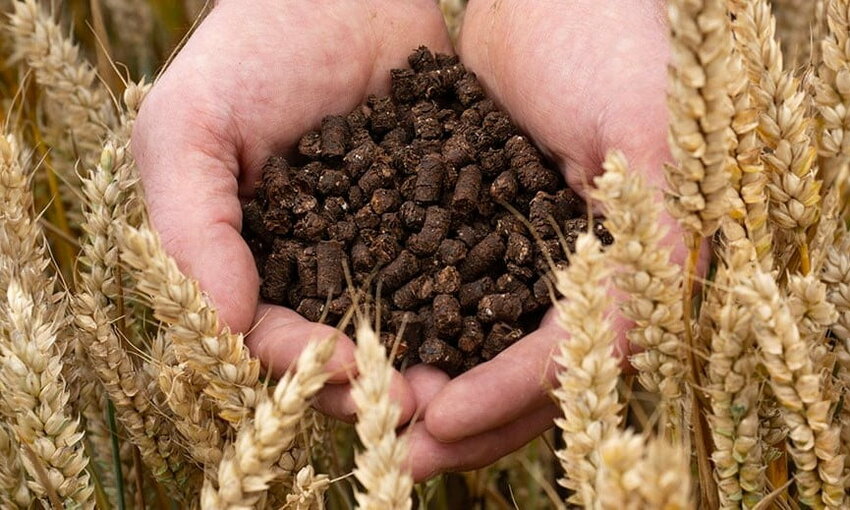 (Credit: Nestlé)
(Credit: Nestlé)Nestlé is planning a pilot program to assess how cocoa shells may be used to create low-carbon fertilizer that may increase crop production and improve soil health while lowering greenhouse gas emissions.
The company said it will use cocoa shells from its confectionary site in York, United Kingdom, and recycle them for use as valuable nutrients in farming. The fertilizer would offer a viable alternative to conventional fertilizers, which account for about 5% of global emissions. In the U.K., over half of the carbon footprint of wheat grown in the region is attributed to fertilizer use.
CCm Technologies has already pelletized a trial volume of cocoa shells, supplied by Cargill’s cocoa-processing operations in York. The fertilizers are being used on farms in Suffolk and Northamptonshire, where Fera Science has designed and is now overseeing the trials. A successful wheat crop at Rookery Farm in Norfolk has already been grown and harvested, producing the same yield results as using conventional fertilizers.
The trial will continue for two years, and if successful, up to 7,000 tons of low-carbon fertilizer may be produced and offered to farmers involved in Nestlé’s U.K. wheat supply chain. This would amount to about 25% of the company’s overall fertilizer use for wheat.
Nestlé has committed to regenerative agriculture practices as a part of its plan to halve its carbon emissions by 2030 and achieve net-zero emissions by 2050. The company has been using Science-Based Targets to assess its emissions. Nestlé is now working with more than 500,000 farmers and 150,000 suppliers towards improving soil health and preserving diverse ecosystems.
The company has already hit several considerable milestones in its sustainability efforts, including achieving a deforestation-free supply chain, planting 20 million trees a year, and using all sustainable palm oil, among others. Further, Nestlé has created a pilot program in Australia for using compostable and recyclable paper packaging for its chocolate bars, and Nestlé France is the first company in Europe to implement hydrogen-powered rail freight.
This latest project reflects an increasing number of food and drink companies looking to support regenerative agricultural practices. As soil depletion and fertilizer-related pollution harm the climate, they also threaten food companies’ ability to function. Regenerative agriculture marks an investment in the future of farming, and it should include support for farmers hoping to switch to regenerative practices.
"Farmers often find themselves to be among the first groups exposed to global issues, and these risks are then borne by the food system we all depend upon," said Matt Ryan, regeneration lead at Nestlé U.K. & Ireland. "We have to find ways to build more resilience into the system and optimizing our use of natural resources is a critical part of this."